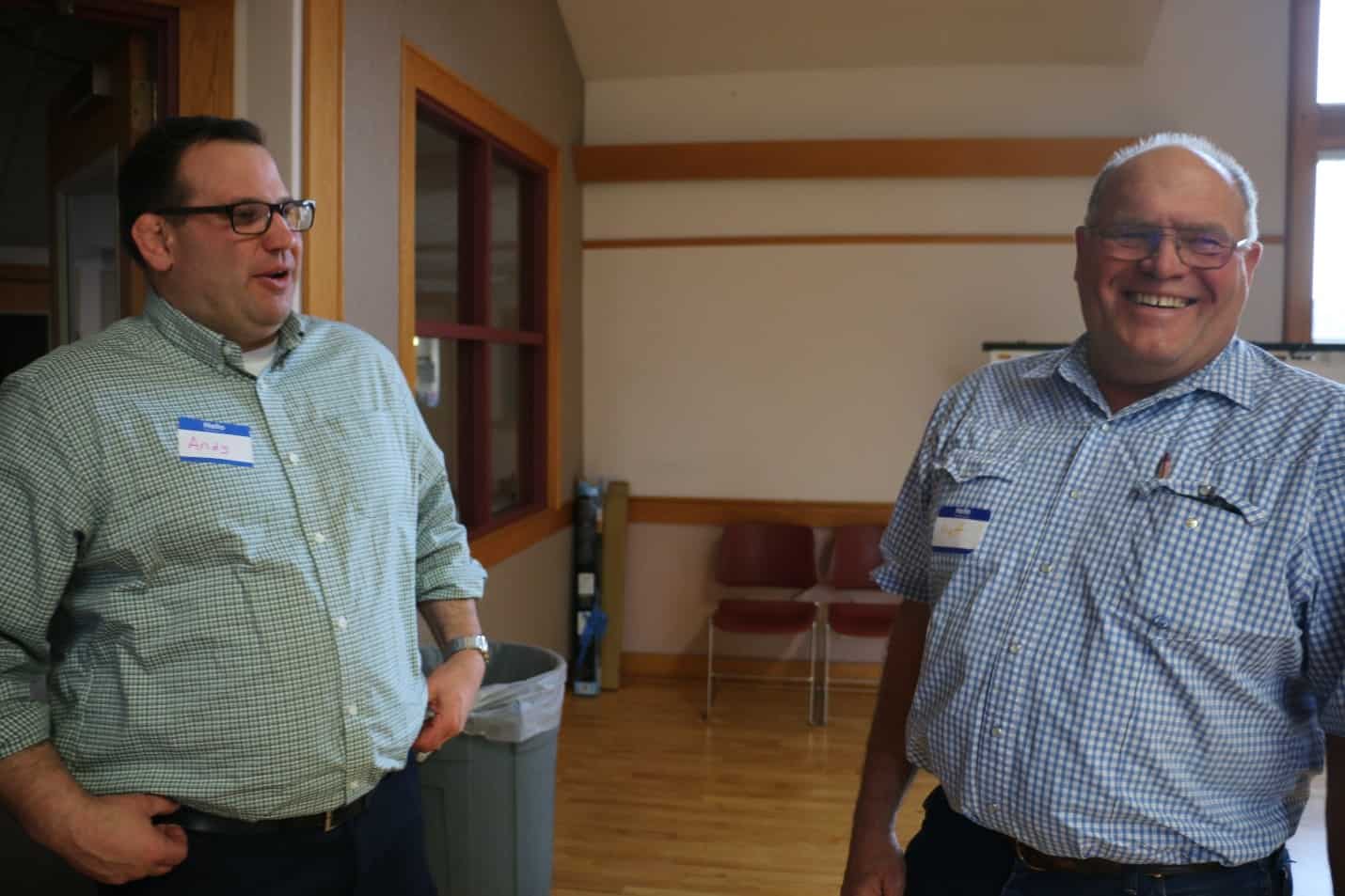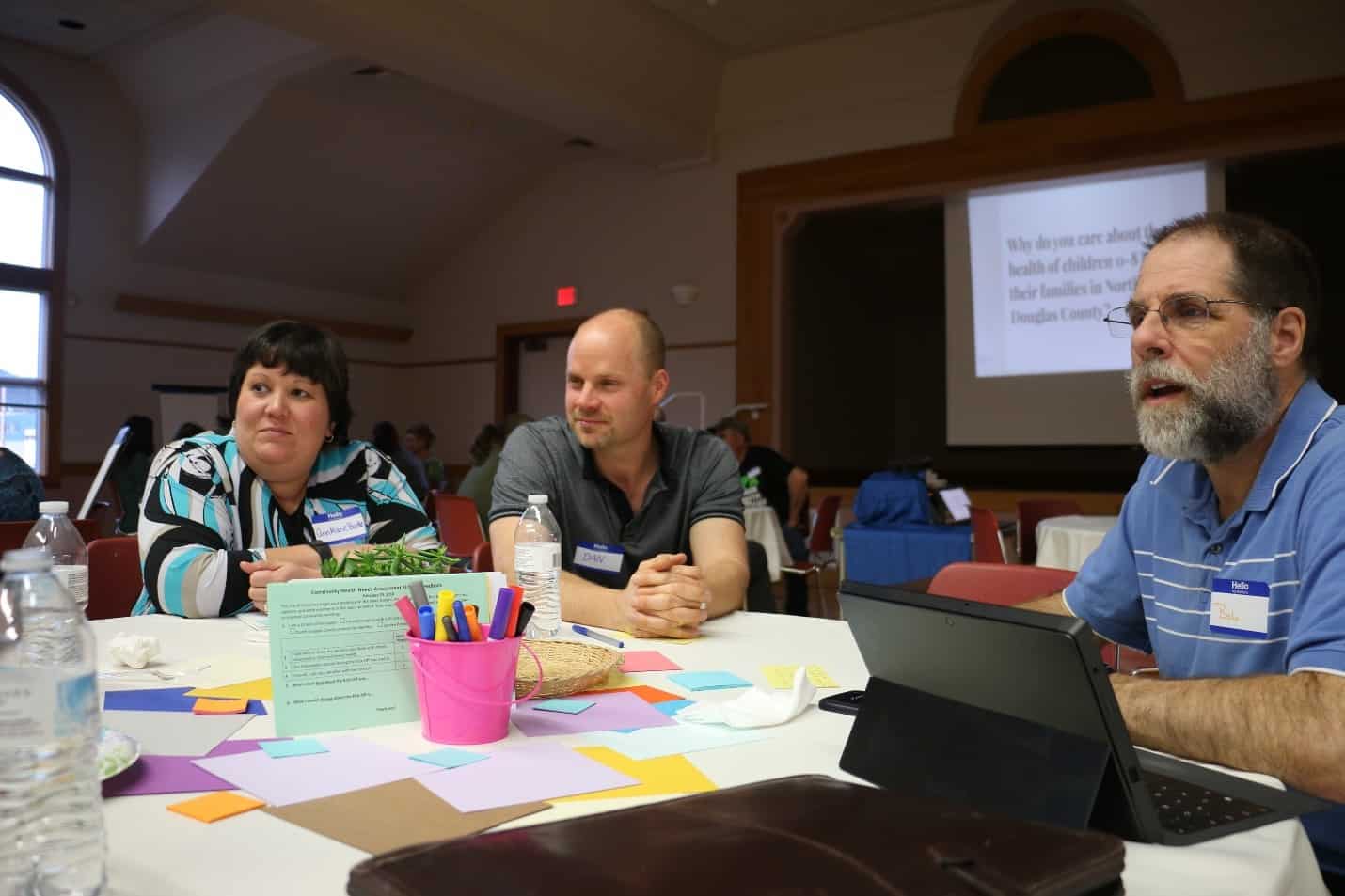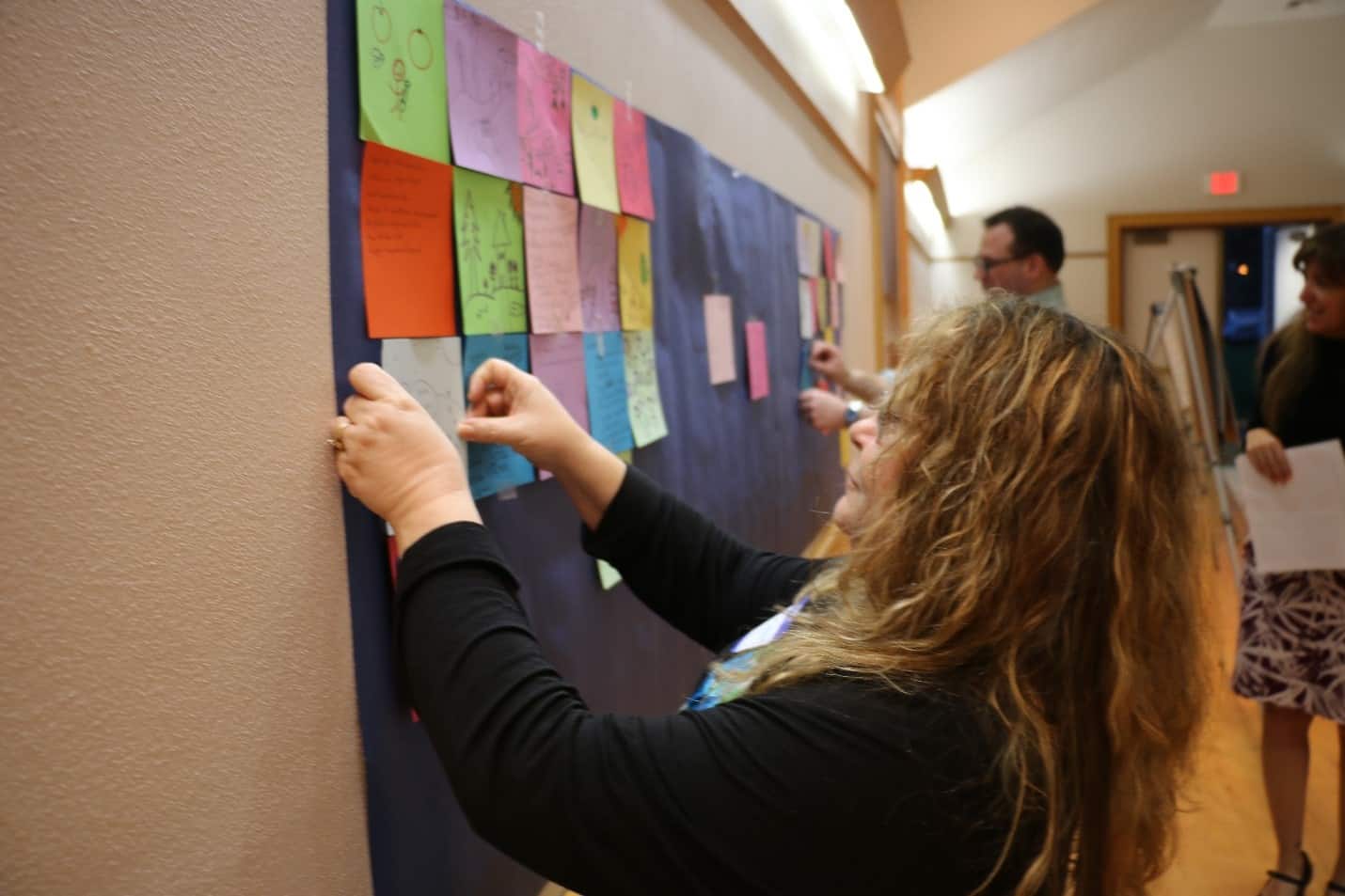
Andy Boe, Elkton School District Superintendent, and Scott Sublette, a leader in the Yoncalla community.
Dr. Beth Green, the researcher who leads the Portland State University team entrusted with the evaluation of the Early Works initiative, is walking down the street in rural Drain, Oregon when she is greeted by a stranger’s voice:
“Hey! Are you with that Ford Family project?”
Beth turns toward the voice; Dave Praeger gets out of his truck and introduces himself. They get to talking. In the back of his car, Dave has a large book named Yoncalla Yesterday. The book traces the history and genealogy of the small town which is the home of the Yoncalla Early Works initiative. Dave encourages Beth to keep the book, saying, “I know you’ll get it back to me somehow. And when you do, my number’s right inside.”
Beth recounts the story with a smile on her face – only here! Welcome to rural Oregon.
Fast forward one day to February 26th. Dave sat in the front row of the Drain Community Center, where the communities of Yoncalla, Drain, and Elkton came together to celebrate the kick-off of the region’s community health assessment. Over plates of lasagna, 50 community members reflected on what is known about the health of young children and their families in the region and to discuss can be done to improve the community’s health. The community health assessment is a first step to help the region understand it’s strengths, needs, resources and challenges when it comes to children’s health.
Conducting a community health assessment is a long-standing best practice in public health because it brings the voice of the community into visioning and planning. “Our goal is that the assessment findings will support the community to articulate a collective vision for health in the region,” says Elena Rivera, Children’s Institute’s Health Policy and Program Advisor. Along with members of the Yoncalla Early Works leadership team and researchers from Portland State University, Rivera is supporting the community health assessment process. “We know from research that the health of young children and their families has a huge impact on educational achievement,” she says, adding, “when a child grows up in a stable home and is connected to high quality health services, starting prenatally, they will be ready for success in school and life.” From this assessment, the Children’s Institute hopes to learn about the barriers communities face in meeting the health needs of families in rural communities. Our participation will inform our work with the legislature to strengthen the connection between early learning and health.
Erin Helgren, the Early Works Site Liaison in Yoncalla, opened the meeting by describing the tight-knit nature of the communities, and the common values that bind them together. “We are a community that holds children close to our hearts,” she said.
Although Drain, Elkton, and Yoncalla are in close proximity to each other geographically – and although they have a combined population of 5,000 – the three communities, as Yoncalla School District Superintendent Jan Zarate noted, “have never collaborated on something of this magnitude. A community health assessment to tell us about the wellness of our families is unprecedented.”

Attendees discuss why they care about the health of children in their community
Indeed, the attendance at the kick-off was broadly reflective of this new sense of collaboration. The room was filled with parents and family members, the three mayors of the communities, educational leaders from all three districts, and representatives from: North Douglas Family Relief Nursery, North Douglas Community Health Alliance, WIC, Healthy Families Oregon, Early Head Start, DHS Self-Sufficiency, South Central Early Learning Hub, and the Douglas County District Attorney’s office.
Representatives from the local school districts set the tone by emphasizing the connection between health in early childhood and later school success: “Finding kids sooner, capitalizing on what they need, and wrapping that service around them helps them succeed,” said Andy Boe, Elkton School District Superintendent.

An attendee adds her square to the health quilt.
As the meeting progressed, Callie Lambarth, a research associate for the Center for Improvement of Child & Family Services at PSU, underscored that the decision to undertake a community needs assessment will be just that – community-based. To this end, Callie led community members through a series of questions like, “Why do you care about the health of children 0-8 and their families in North Douglas County?” and “What does a healthy community look like to you?” As the table groups discussed these questions, they were encouraged to share their answers with the larger group and, in one exercise, were asked to visualize community health by drawing a picture on a square of paper. These squares were then placed together on a board to create a community health “quilt.” Themes that emerged included access to healthy food, health care, housing, safe outdoor spaces, and a caring, welcoming, and collaborative community.
The meeting ended with an interactive exploration (via bingo) of some existing health data for the region, and the identification of potential “gaps” in the data. Interested community members were then invited to participate in the design of a community health assessment – whether as a Steering Committee member, community meeting attendee, or simply to stay connected via email updates.
Following the community health assessment kick-off, Children’s Institute and PSU staff will reach out to community members who expressed an interest in serving on the community health assessment’s Steering Committee. The Steering Committee will then convene bi-monthly to determine the focus of the community health assessment. Members will review existing community health data, identify needs and gaps, determine research questions, and outline a research methodology and design. The second phase of the community health assessment will involve primary data collection conducted by community members to inform future health programming for the community.
No matter how community members choose to participate in the process moving forward, everyone who attended the February 26th kick off meeting left with a greater knowledge of health in the region, a budding vision for what a regional health collaboration could look like and – of course –a to-go box of full of delicious lasagna to share with their families.
